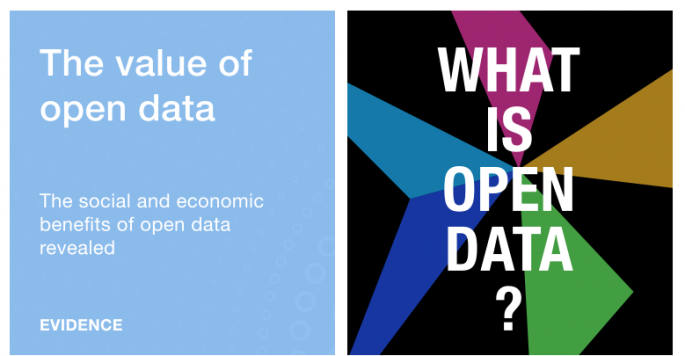The power of open data: Britain’s Open Data Institute (ODI) is catalyzing the open-access culture
27/05/2016



Sir Tim Berner-Lee’s 5 stars of open data has become a mantra in open data culture
In it the ODI co-founder pinpoints five principles of open data publishing, which if everybody in the future put to use, could have significant economic, environmental and social value.
Making data open so that it can benefit lives and tackle some of the big social challenges facing the world today is the reason Sir Tim Berners-Lee and Sir Nigel Shadbolt founded the ODI. Created in 2012 it promotes innovation through open data across five key sectors: agriculture and nutrition, data infrastructure, finance, global development and open cities, and is concentrated on four clusters – the business and public sectors, universities, and international issues.

 In four years the ODI has trained thousands of people in open data techniques, incubated open-data related start-ups, clocked up swathes of members and acquired a significant global reach.
In four years the ODI has trained thousands of people in open data techniques, incubated open-data related start-ups, clocked up swathes of members and acquired a significant global reach.
With the open data revolution in full swing the ODI cites a 2011 report that estimates that the EU market for public sector data could grow to E40billion per year.
Currently, 13 “nodes” of the ODI are present in 20 countries around the world. Operating at a city or national level these franchises of the ODI have committed to spreading expertise and technology in open data through peer learning and collaboration. Register your interest here.
In terms of evolution, although the ODI remains a London-based organization it has been inundated with requests to start similar organizations around the world.
What it does
The ODI offers training in open data techniques, currently offering the largest selection of Open Data training courses in the world. It offers events – including lunchtime lectures, and membership – costing as little as £1, which knits together the international ODI community.
The training courses are tailored to the ODI’s different areas of focus. Here’s the ODI course on Open Data in Agriculture and Nutrition
The ODI also provides consultancies, giving input and providing leadership on emerging data issues.
Ongoing research includes the Data-and Platform-as-a-Service (DaPaaS), aimed at helping developers and publishers by delivering a platform for publishing, consuming and reusing open data, as well as deploying open data applications. The Open Data Monitor lets users see and analyze existing open data and gives a better understanding of the European Open Data landscape, (OpenDataMonitor.eu).
Meanwhile the Share PSI is a European network for swapping ideas about open data implementation in the public sector.
A further project is focused on mapping and understanding commercial uses of open data by companies in the UK.
Elsewhere the institute helps to find and incubate open-data start-ups, provides tools standards and techniques, and certifies data, with the aim of unlocking the full potential of data and maximizing reuse.


From farm to fork: GODAN and the ODI
When the ODI carried out a recent stakeholder survey for Global Open Data for Agriculture and Nutrition (GODAN) it found that although the amount of data openly available is constantly increasing, there are still challenges related to data management, licensing, interoperability and exploitation. Above all there is a need to evolve policies, practices and ethics around closed, shared, and open data.

Through a series of diverse use cases the paper shows how open data can be useful in different stages of agriculture, food production and consumption. Specifically, the paper outlined three ways:
- Enabling more efficient and effective decision making
- Fostering innovation that everyone can benefit from
- Driving organizational and sector change through transparency
Separately, the ODI Futures event in December 2015 was a chance for experts to come together to help set the open-data agenda in agriculture and nutrition for years to come.
On an ongoing level, the ODI seeks inputs from experts in agriculture and nutrition, as bloggers, members or advisors.
If you have a story to tell or experience to share about improving nutrition and agriculture with open data, pitch it to the ODI at: [email protected]
